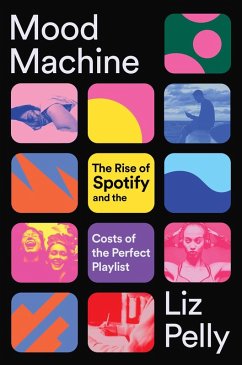
The History Of The Music Industry
1991 to 2022
Versandkostenfrei!
Versandfertig in 1-2 Wochen
20,99 €
inkl. MwSt.
Weitere Ausgaben:

PAYBACK Punkte
10 °P sammeln!
The 1990s were a significant period of change for the music industry. The rise of digital technology brought both opportunities and challenges to artists and musicians. One of the most significant challenges was the emergence of online piracy, which allowed people to easily download music without paying for it. At the beginning of the decade, compact discs (CDs) were the dominant format for music. However, by the mid-1990s, digital music formats such as MP3s became popular, allowing for the easy sharing of music online. This resulted in a decline in CD sales and a decrease in revenue for recor...
The 1990s were a significant period of change for the music industry. The rise of digital technology brought both opportunities and challenges to artists and musicians. One of the most significant challenges was the emergence of online piracy, which allowed people to easily download music without paying for it. At the beginning of the decade, compact discs (CDs) were the dominant format for music. However, by the mid-1990s, digital music formats such as MP3s became popular, allowing for the easy sharing of music online. This resulted in a decline in CD sales and a decrease in revenue for recording companies. The music industry attempted to combat piracy by pursuing legal action against file-sharing websites such as Napster, but it proved to be a lengthy and ineffective process. Artists and musicians also suffered financially, as they lost out on royalties from album sales. In response to the decline in physical album sales, many artists turned to touring and merchandise sales 1 Dendrome to generate income. The rise of alternative rock and hip-hop also led to the growth of independent labels, which provided opportunities for artists outside of the mainstream to gain exposure. The 1990s also saw a shift in the music industry's focus on album sales to single sales. This was driven by the popularity of MTV and other music video channels, which heavily featured music videos and created a demand for singles. This shift led to the rise of pop stars such as Britney Spears and Christina Aguilera, who were marketed heavily through music videos and radio airplay. Despite the challenges facing the industry during this period, the 1990s also saw some notable successes. The emergence of grunge and alternative rock bands such as Nirvana, Pearl Jam, and Soundgarden helped to revitalize the rock genre. Hip-hop also became increasingly popular, with artists such as Dr. Dre and Tupac Shakur achieving mainstream success. Overall, the 1990s were a period of significant change and challenges for the music industry. The rise of digital technology, the decline in physical album sales, and the emergence of online piracy all had a significant impact on recording artists and musicians. However, the decade also saw the emergence of new opportunities and genres, as well as the rise of independent labels and artists outside of the mainstream.














